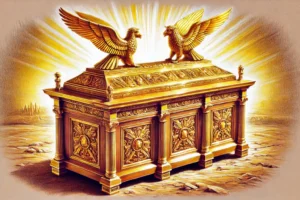
What are the first three words of the Bible?
Biblical Reference and Context
The phrase “In the beginning” opens the Bible in Genesis 1:1. This introduction is not only the starting point of the Book of Genesis but also the commencement of the entire biblical narrative. These words signify the start of God’s creative work and establish the foundation for understanding the nature of God and His relationship with the world.
Theological Significance
“In the beginning” conveys several profound theological truths:
- God’s Eternity: The phrase implies that God exists outside of time and initiated the creation of the universe. It underscores God’s eternal nature, suggesting that He existed before time and creation.
- Creation Ex Nihilo: The phrase supports the concept of creation “ex nihilo” (out of nothing). This idea is fundamental to Christian doctrine, emphasizing that the universe did not arise by chance or from pre-existing materials but through God’s sovereign command.
- God’s Sovereignty: It highlights God’s supreme authority and power over all things. By starting with creation, the Bible immediately places God as the ultimate source and ruler of everything that follows.
Literary Significance
The opening phrase “In the beginning” is both simple and profound, setting the tone for the entire biblical text. It introduces a narrative that is both historical and theological, inviting readers into the story of God’s interaction with humanity. The phrase serves as a literary marker that distinguishes the biblical worldview from other ancient Near Eastern creation myths, emphasizing monotheism and the intentional act of creation by a singular, omnipotent God.
Philosophical Implications
Philosophically, “In the beginning” addresses fundamental questions about existence, purpose, and causality:
- Existence: It answers the question of where everything originated, attributing the existence of the universe to a deliberate act by a conscious Creator.
- Purpose: The phrase suggests that creation is purposeful and directed, countering views that see the universe as a result of random chance.
- Causality: It introduces the idea of a primary cause, God, who is the uncaused cause of everything that exists.
Comparative Religious Context
In the context of ancient religions and myths, “In the beginning” stands in contrast to other creation stories. Many ancient Near Eastern myths involve chaotic struggles between gods or the emergence of the world from primordial chaos. The biblical account, however, begins with a calm and orderly act of creation by a single, sovereign God. This sets the biblical narrative apart, emphasizing order, intentionality, and the goodness of creation.
Modern Relevance
“In the beginning” continues to have relevance in modern theological and philosophical discussions. It serves as a foundational statement for Judeo-Christian beliefs about the universe’s origin, informing debates on topics such as cosmology, the relationship between science and religion, and the nature of time and eternity.
Conclusion
The phrase “In the beginning” is a profound and foundational declaration that sets the stage for the entire Bible. It encapsulates key theological, literary, and philosophical themes, emphasizing God’s eternal nature, sovereign power, and the purposeful act of creation. This simple yet profound introduction invites readers to explore the narrative of God’s interaction with the world, highlighting the significance of understanding our origins from a biblical perspective.
Tag:Ancient Near Eastern Myths, Biblical Narrative, Cosmology, Creation, Creation Ex Nihilo, Eternity of God, Genesis 1:1, God's sovereignty, In the Beginning, Judeo-Christian beliefs, Literary Significance, Monotheism, Order and Intentionality, Philosophical Implications, Primary Cause, Purpose of Creation, Science and Religion, theology, Time and Eternity



